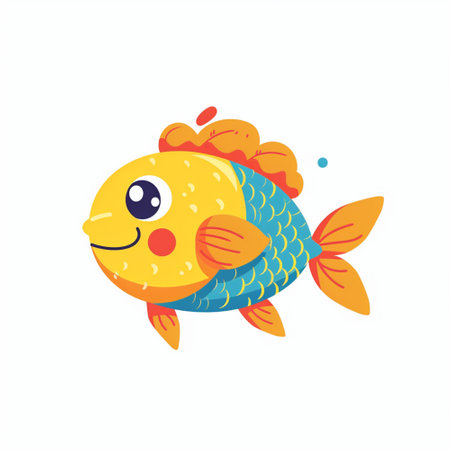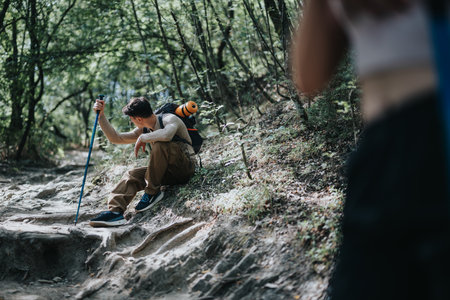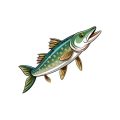Introduction to Junior Angler Programmes in the UK
If you’ve ever spent a sunny Saturday by the riverbank here in the UK, you’ll know there’s something truly special about our angling community. For many of us, that first tug on the line as a youngster was all it took to get hooked for life! But these days, getting young people involved in fishing isn’t just about handing them a rod and hoping for the best. That’s where junior angler programmes come into play. Designed specifically with younger fishing enthusiasts in mind, these schemes are thoughtfully set up by angling clubs, local councils, and national organisations to provide a safe, fun, and educational introduction to the sport.
At their core, UK junior angler programmes focus on much more than just catching fish. They’re about nurturing a lifelong love of nature, building confidence on and off the bank, and teaching the essentials of water safety and environmental respect. Most importantly, they create a friendly space for kids to learn from experienced anglers—often volunteers who remember exactly what it felt like to be starting out themselves. These mentors are central to what makes our junior programmes so effective; they’re not just teaching knots and casting techniques, but passing down values that help shape responsible anglers for years to come.
In a nutshell, junior angler programmes are vital because they keep our fishing traditions alive while giving kids positive experiences outdoors—something we can all agree is more important than ever these days. Whether it’s through club-run workshops or nationwide initiatives like Get Fishing, these programmes are laying strong foundations for the next generation of passionate UK anglers.
2. The Vital Role of Mentorship
When we talk about junior angling in the UK, there’s something truly special about the bond between a young angler and their mentor. It’s not just about teaching a kid to cast a line – it’s about passing on generations of wisdom that you simply won’t find in any manual. A good mentor is part coach, part confidant, and part storyteller, all rolled into one. They’re the folks who turn early morning meet-ups at the local pond into unforgettable life lessons.
Supporting and Inspiring the Next Generation
Mentors do far more than demonstrate how to tie a knot or choose the right bait. They offer encouragement when the bites are slow, share stories from their own fishing adventures, and help juniors read the water like an open book. Sometimes, it’s those quiet chats on the bank that make all the difference – instilling patience, respect for nature, and a genuine love for our waterways.
What Mentors Bring to Junior Anglers
| Mentor Contribution | Why It Matters |
|---|---|
| Watercraft Wisdom | Helps juniors understand fish behaviour, reading swims, and adapting to changing conditions. |
| Unwritten Rules of the Bank | Teaches proper etiquette, safety, and respect for fellow anglers and wildlife. |
| Moral Support | Keeps spirits high during tough sessions and celebrates every success, big or small. |
| Cultural Traditions | Passes down UK-specific angling customs, sayings, and local know-how. |
| Sustainable Practices | Promotes catch-and-release techniques and environmental stewardship for future generations. |
The Ripple Effect of Good Mentoring
A well-mentored junior isn’t just more likely to stick with fishing – they’re also more likely to become respectful, knowledgeable anglers themselves. Over time, many go on to mentor others, keeping our rich British angling traditions alive. There’s real pride in seeing juniors develop confidence on the bank and watching them start to share their own tips with mates. That’s when you know you’ve done your bit – not just teaching fishing skills, but helping shape someone who’ll value our beloved sport for years to come.

3. Building Confidence and Camaraderie on the Bank
One of the most rewarding aspects of mentorship in UK junior angler programmes is how it helps youngsters build confidence and forge genuine friendships along the water’s edge. For many beginners, turning up at a local canal or a club match can be daunting – there’s a lot to take in, from setting up your kit to reading the water. A good mentor is there every step of the way, sharing practical tips with a friendly nudge and offering encouragement when things don’t go quite to plan.
It’s not just about catching your first roach or landing a decent carp; it’s about finding your feet amongst like-minded mates. Under a mentor’s wing, juniors quickly learn that everyone starts somewhere, and even seasoned anglers have their off days. The laughter after a missed bite, the shared stories about ‘the one that got away’, and those proud moments when someone finally gets their PB (personal best) – these are what make British fishing clubs feel like a proper community.
Whether you’re fishing a tranquil stretch of the Grand Union Canal or competing at a bustling club match on the River Trent, mentors help break down barriers. They introduce newcomers to club regulars, explain local angling etiquette, and make sure no one feels left out. Before long, shy first-timers are swapping tips on rigs or joining in for a well-earned brew during a rain break.
This sense of belonging is priceless for young anglers. It keeps them coming back week after week, eager to improve and keen to be part of something special. In many ways, it’s these moments of camaraderie on the bank that shape lifelong anglers – and it all starts with a bit of guidance from someone who’s been there before.
4. Learning British Fishing Traditions and Ethics
One of the most rewarding aspects of mentorship in UK junior angler programmes is introducing youngsters to the time-honoured traditions and ethics that make British fishing culture so special. Through real-life sessions on the bank, mentors do much more than just teach casting techniques—they pass down a deep-rooted respect for local customs, the environment, and the unspoken etiquette cherished by generations of anglers.
Local Angling Customs
Fishing in Britain isn’t just about catching fish; it’s about understanding and respecting centuries-old practices. Mentors take juniors under their wing, sharing stories from their own experiences and explaining why certain methods, bait choices, or even greetings at the waterside matter so much. For example, many clubs have unique ways of drawing swims or marking pegs—small rituals that create a sense of belonging and continuity.
Respecting the Environment
If there’s one thing every British angler learns early on, it’s the importance of leaving the water better than you found it. Mentors instil these values by setting examples—always taking litter home, handling fish with care, and encouraging juniors to report any signs of pollution or damage to habitats. This environmental stewardship is woven into every session, creating responsible anglers for life.
| Tradition/Ethic | How Mentors Teach It |
|---|---|
| Respecting Quiet Zones | Reminding juniors to keep noise down in designated areas to avoid disturbing other anglers and wildlife. |
| Casting Etiquette | Demonstrating how to cast safely without crossing lines or encroaching on neighbours’ swims. |
| No Trace Left Behind | Showing how to clear up tackle and rubbish at the end of every session. |
| Reporting Issues | Teaching when and how to report invasive species, pollution, or illegal activity to club officials or authorities. |
The Spirit of British Fishing Etiquette
Etiquette is what truly sets British angling apart—from giving a friendly nod as you pass someone on the towpath, to asking permission before joining a peg nearby. Mentors emphasise these small but significant gestures, helping juniors blend seamlessly into local fishing communities. It’s this shared understanding and mutual respect that keeps our watersides welcoming for all generations.
5. Success Stories from the Peg
If you’ve ever spent time at a British fishing peg, you’ll know it’s where real magic happens – not just with rods and reels, but through friendships and mentorships that shape lives. Across the UK, junior angler programmes have brought together young hopefuls and experienced anglers, and the results are nothing short of inspiring.
Take young Ellie from Yorkshire, for example. She joined her local club feeling shy and unsure, but under the watchful eye of her mentor Dave, she not only mastered casting techniques but also found her confidence growing week by week. With Dave’s encouragement, Ellie entered her first junior match – and surprised everyone (herself most of all) by taking home third place! It wasn’t just about winning; it was about believing in herself, a lesson she says helps her tackle schoolwork and friendships too.
Or there’s Josh down in Kent. His mum signed him up for angling to help him focus after a tough year at school. Through patient guidance from his mentor, Pete, Josh learned to read the water and understand fish behaviour – skills that translated into better concentration off the bank as well. Now Josh is a regular on the junior competition scene and has even started mentoring younger kids himself, passing on what he’s learned.
These stories aren’t rare. Around every corner of Britain, mentors are quietly helping juniors unlock their potential. Whether it’s learning how to tie a tricky knot or managing nerves before a big event, the support given goes far beyond fishing itself. Many parents say their children return from sessions more resilient, sociable, and self-assured – qualities that last a lifetime.
The real success? It’s seeing young anglers grow into not just skilled fishermen and women, but confident members of their communities. That’s the true catch of mentoring within UK junior angler programmes – it changes lives both on and off the water.
6. Looking Ahead: Strengthening Mentorship in British Angling
If we want to see the next generation of anglers casting lines with skill and pride, it’s vital that we continue to nurture and strengthen mentorship in UK junior angler programmes. The future of British angling depends not only on teaching youngsters how to catch a fish but also on sharing the traditions, ethics, and community spirit that make our sport so special.
Encouraging More Volunteers from All Walks of Life
One key step forward is recruiting more mentors from different backgrounds. Whether you’re an experienced match angler or just someone who loves the peace and camaraderie of your local canal, your knowledge is invaluable. Local clubs can hold open days or “mentor taster sessions” to help potential volunteers get involved without feeling intimidated by formalities. Let’s remember, everyone has something unique to offer.
Building Stronger Community Links
Mentorship thrives when the whole community gets behind it. Collaborations between angling clubs, schools, and even local tackle shops can create a wider support network for junior anglers. Imagine school fishing weeks or after-school club partnerships—these are brilliant opportunities to introduce more young people to the joys of angling under the watchful eyes of passionate mentors.
Celebrating and Sharing British Angling Traditions
Our heritage is what sets British angling apart, from classic float fishing on a misty riverbank to the friendly banter at the weigh-in. Mentors play a big role in passing these customs down, but why not make them centre stage? Organising annual “tradition days” where juniors learn old-school techniques or hear tales from seasoned anglers can bring history alive and spark lifelong enthusiasm.
Keeping It Fun and Relevant
Let’s not forget—mentoring should be enjoyable! Mixing traditional skills with modern approaches (like using apps for species ID or sharing tips on social media) keeps things fresh for today’s youngsters. Encourage mentors to be open-minded and responsive to what excites the next generation while never losing sight of the core values that have shaped British angling.
The future looks bright if we all do our bit. By enhancing mentorship programmes, celebrating community, and keeping those wonderful British traditions alive, we’ll ensure that junior anglers not only learn how to fish but also carry forward a love for our sport that lasts a lifetime.


